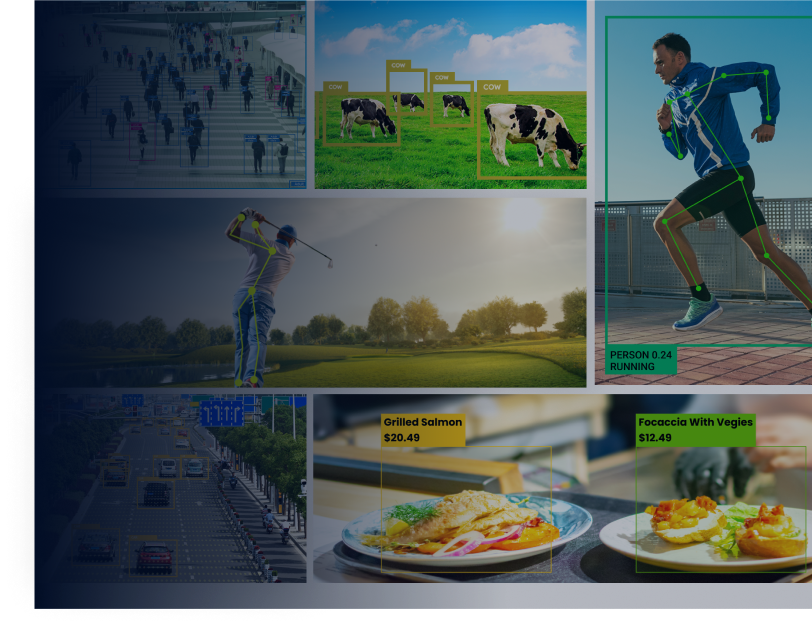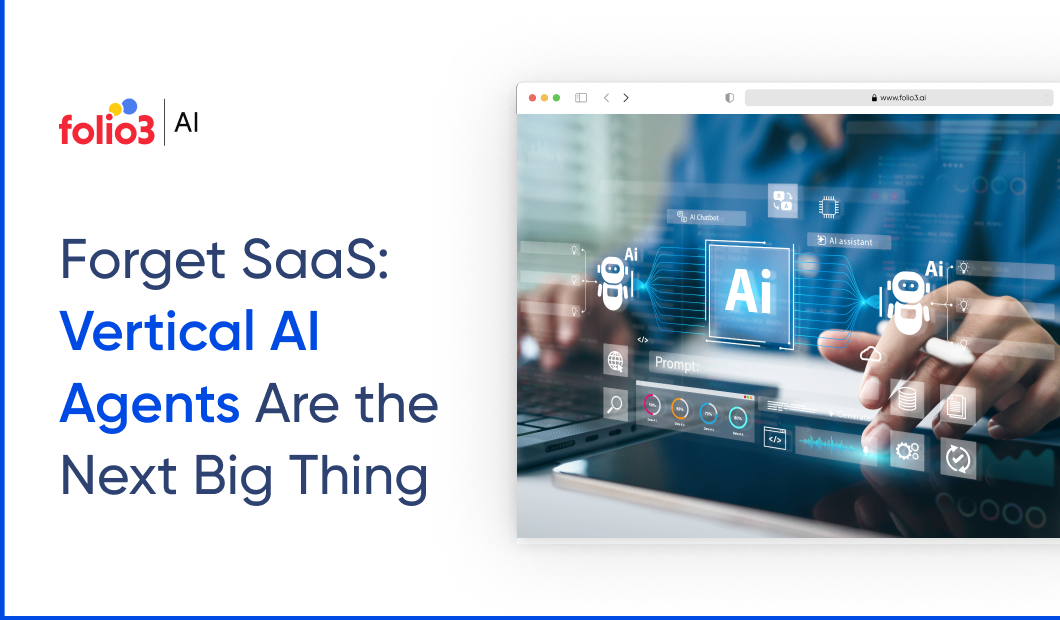Introduction
In today’s digital landscape, businesses are continuously seeking innovative solutions to enhance their operations and improve efficiency. Many companies have found success with SaaS, or Software as a Service, which offers a range of software tools accessible via the internet.
While SaaS has provided flexible and cost-effective services, there’s an emerging trend that could redefine how we think about business solutions: Vertical AI Agents. These specialized AI systems are designed to meet the unique needs of specific industries, making them a game-changer in the technology sector.

Understanding the Shift in Technology
The SaaS Landscape
SaaS has been a popular choice for many businesses because it eliminates the need for extensive hardware and software installations. Companies can simply subscribe to services such as cloud storage, email services, or customer relationship management (CRM) tools.
However, these generalized solutions often fall short in addressing the specific challenges faced by different industries. For instance, a CRM tool that works well in retail might not meet the particular needs of healthcare providers or construction firms.
The Emergence of Vertical AI Agents
This is where Vertical AI Agents come in. Vertical AI Agents are AI-driven solutions tailored to address specific challenges within certain industries, whether it’s healthcare, finance, retail, or agriculture.
In contrast to horizontal AI, which applies general solutions across various sectors, Vertical AI focuses on creating specialized applications that understand and navigate the nuances of a particular field.
Features and Advantages of Vertical AI Agents
Customization and Specificity
One of the most important features of Vertical AI Agents is their ability to provide customized solutions. For example, in the healthcare sector, an AI agent can analyze vast amounts of patient data, including medical history, lab results, and even genetic information.
This allows doctors to receive recommendations for diagnoses tailored to each individual patient. Companies like IBM Watson Health have pioneered these solutions, making significant strides in personalized medicine.
Improved Efficiency and Performance
Vertical AI Agents significantly improve efficiency by automating complex tasks. In finance, for instance, AI agents like ZestFinance utilize machine learning algorithms to quickly assess credit risk.
Instead of relying solely on traditional credit scores, the AI analyzes various data points like transaction history and social factors to provide a more nuanced picture of a borrower’s creditworthiness. This results in faster loan approvals and better financial inclusivity for underserved populations.
Enhanced User Experience
User experience is another area where Vertical AI Agents shine. For example, consider a retail business that uses a vertical AI agent to track customer interactions and preferences.
Companies like Stitch Fix employ AI to analyze customer feedback and purchase history to curate personalized clothing selections. When customers feel understood and catered to, they are more likely to return and make additional purchases, boosting brand loyalty and sales.
Cost-Effectiveness
Vertical AI solutions can also lead to significant cost savings. In the manufacturing sector, companies are using predictive maintenance powered by vertical AI agents to anticipate machine failures before they happen. This is better illustrated by GE Aviation, which uses AI to monitor jet engine performance.
By analyzing data in real-time, the system can predict when an engine part might fail, allowing maintenance to occur before a breakdown. This predictive capability not only saves money but also minimizes downtime, keeping operations running smoothly.

Key Industries Benefiting from Vertical AI Agents
Healthcare
Vertical AI Agents are revolutionizing healthcare by providing deeper insights into patient care and operational efficiency. AI systems can monitor patient vitals and alert medical staff of any abnormalities, significantly improving response times. Moreover, companies like Aidoc use AI to analyze medical imaging, helping radiologists identify issues faster and more accurately.
Finance
The finance industry is another area where Vertical AI is making waves. AI-driven platforms can analyze market trends and consumer behavior to aid in investment decisions. For instance, Wealthfront uses AI to automatically adjust investment portfolios based on changing market conditions and user financial goals. This level of personalization was challenging to achieve with conventional means.
Retail
In retail, businesses are leveraging Vertical AI to enhance customer experiences. Walmart utilizes vertical AI to manage inventory efficiently. By analyzing purchasing patterns and trends, their AI system can predict which items will be in demand, allowing the store to stock up before products run out.
Agriculture
Agriculture is also seeing a remarkable transformation due to Vertical AI. Companies like Blue River Technology develop AI solutions that help farmers manage their crops more efficiently. Their systems can analyze field images to determine plant health and recommend specific treatments based on real-time data. This leads to better crop yields and reduced pesticide usage.
Real-World Examples of Vertical AI Implementation
Let’s look at a few practical applications of Vertical AI:
- Logistics: A delivery company might implement vertical AI to optimize routes for their drivers. By analyzing traffic patterns, weather forecasts, and delivery locations, the AI can suggest the most efficient routes, reducing fuel costs and improving delivery times. For instance, the company UPS uses AI to prioritize deliveries based on real-time traffic data, leading to significant reductions in operational costs.
- Retail Personalization: Imagine an online store that employs a vertical AI agent to analyze customer behavior. If a customer has previously bought workout gear, the AI can suggest new products like running shoes or fitness trackers based on similar customer preferences. This personalized experience increases the chances of conversion from browsing to buying.
- Smart Farming: A farmer might use a vertical AI agent to monitor soil health. By analyzing soil moisture, pH levels, and nutrient content, the AI can provide recommendations on the best crops to plant and the optimal times for irrigation. This level of precision leads to healthier crops and increased harvests.
Challenges and Considerations
Despite the immense benefits, companies should carefully consider the challenges associated with adopting Vertical AI strategies. Implementation can require significant investments in both time and resources. Additionally, technical hurdles, such as integrating AI systems with existing infrastructure, may pose challenges.
Another crucial aspect is data security. With the increasing amounts of sensitive data being collected, businesses must ensure that they have robust systems in place to protect customer information. Companies must adhere to privacy regulations and ensure that their AI systems are transparent in their operations.
Lastly, to fully leverage Vertical AI, organizations need skilled professionals who understand both the technology and the particular industry in which they operate. Investing in training and education will be vital to building expertise in this rapidly evolving field.
The Future of Vertical AI Agents
Looking ahead, the potential for Vertical AI Agents is vast. As technology continues to advance, these agents are expected to become even more sophisticated, offering deeper insights and more personalized solutions. For businesses, the early adoption of Vertical AI can provide a significant competitive edge.
To prepare for this shift, companies can explore partnerships with technology providers and industry leaders. Collaborative efforts can lead to developing innovative vertical AI solutions tailored to specific industry challenges, driving growth and efficiency.

Conclusion
In conclusion, Vertical AI Agents are set to transform the way we approach business solutions. By providing specialized, industry-specific applications, these agents can enhance efficiency, improve user experiences, and offer substantial cost savings. In a world where technology is constantly evolving, it’s essential for businesses to adapt and embrace the tailored solutions that Vertical AI has to offer.
As we move forward, it may be time to rethink our reliance on generalized SaaS and embrace the possibilities that Vertical AI Agents present. This transition is more than a trend; it’s a step toward creating smarter, more efficient industries that could redefine not just how we work, but how we live.
Vertical AI agents are specialized tools designed to solve industry-specific challenges, whereas traditional SaaS solutions are typically broader, generalized platforms that cater to a wide range of business needs.
Vertical AI agents are highly focused on delivering deep insights and automation within a specific industry, such as healthcare, finance, or retail, leveraging AI models tailored to the nuances and requirements of that sector. This results in faster, more accurate outcomes and a better ROI compared to generalized SaaS offerings.
Vertical AI agents are designed to understand the unique workflows, processes, and data types within specific industries. By doing so, they can provide more accurate predictions, automate complex tasks, and uncover insights that might be overlooked by generic AI solutions.
For example, in healthcare, a Vertical AI agent might be capable of analyzing medical records to assist in diagnosis, while in finance, it could detect fraud with greater precision. These specialized capabilities help businesses make better decisions faster and reduce operational inefficiencies.
While Vertical AI agents are optimized for a specific industry, they can be adapted or re-engineered to serve other sectors. However, their true strength lies in the specialized training and data models they possess, which are built to address the unique challenges of a particular domain.
Cross-industry adaptability often requires significant customization and retraining, making Vertical AI agents more effective and scalable when focused on their primary vertical.
Data is the backbone of any AI model, and Vertical AI agents rely heavily on high-quality, domain-specific data to function effectively. In sectors like healthcare or finance, the volume and complexity of data require AI agents to understand context, nuances, and regulatory compliance.
Vertical AI agents use tailored algorithms to process and analyze these industry-specific data sets, enabling them to make highly informed decisions and provide recommendations that would be difficult for generic models to produce.
One of the main challenges in implementing Vertical AI agents is the complexity of integrating them into existing systems, especially for industries with legacy technologies. Additionally, there may be concerns about data privacy, ethical considerations, and regulatory compliance.
To overcome these challenges, businesses must invest in the right infrastructure, ensure proper data governance, and partner with AI vendors who understand the intricacies of their sector. Effective training of the AI agent to handle domain-specific tasks is also crucial to success.









